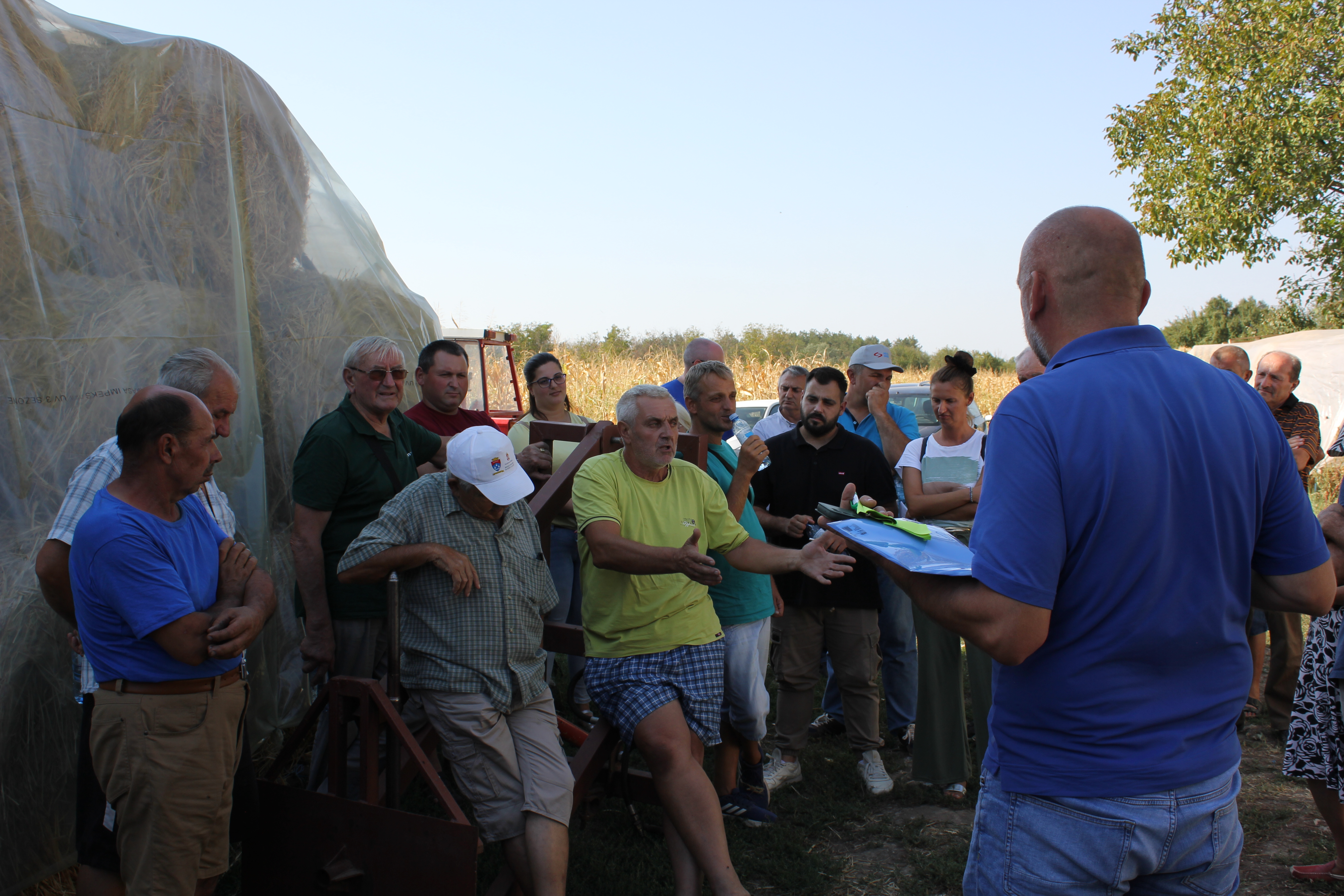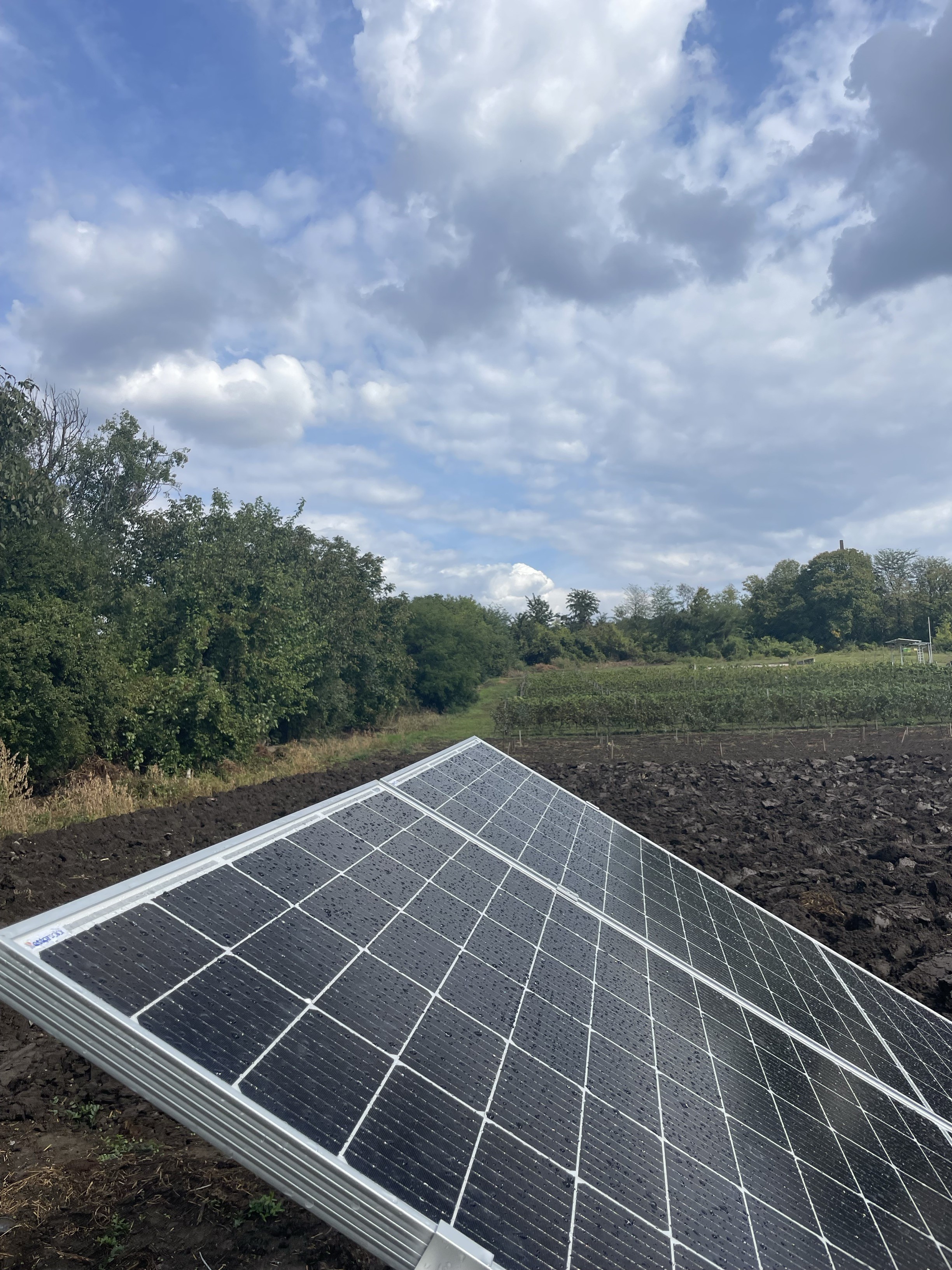In cooperation with the Agricultural Advisory and Expert Service Požarevac (PSSS Požarevac), within the project “Strengthening Disaster Resilience in Agriculture”, funded by the European Union and implemented by the Food and Agriculture Organization of the United Nations (FAO), with the support of the Ministry of Agriculture, Forestry, and Water Management of the Republic of Serbia, a demo center was established in Braničevo district, which includes the territory of two municipalities - Požarevac and Žabari. During the delivery of the solar panels to the demo center, we spoke with Bojan Stević, director of PSSS Požarevac, and Slobodan Stojićević, director of the Agricultural School with student dormitory "Sonja Marinković" about the impacts of climate change on agriculture in their district and the reduction of negative impacts through activities that are implemented within the project.
"The data of PSSS Pozarevac shows that it did not rain for 71 days this year during the summer period. All production was threatened, we cannot limit ourselves and say that only husbandry production was problematic. Higher yields were only feasible for wheat, because wheat ends its growing season at the beginning of July, which was slightly shifted this year due to the climate. Sunflower and corn yields are below the multi-year average. Also, the strong intensity of the sun affects fertilization and the appearance of burns on fruits, so the impact of climate change is also pronounced in vegetable and fruit production," explained Slobodan Stojićević.
In order to explore adequate practices for reducing the impact of climate change and natural disasters, adapted to local conditions in the Braničevo district, PSSS Požarevac, in cooperation with FAO, started testing various technologies and practices on the demo fields. One of the activities that was carried out was subsoiling, with the aim of analyzing the difference in the amount of yield before and after the application of this measure.
"The subsoiling was done in six locations, and the yield in the part where this measure was carried out is greater from 5 to 25 percent, depending on the terrain," said Bojan Stević. He added that the Braničevo District has mostly acidic soil, so the proposal to the local governments is to introduce calcification as a mandatory measure.
Our interlocutors agreed that the consequences of climate change are becoming more pronounced and that the importance of this project is that it brings together different actors, such as agricultural producers, institutions, local governments, advisors from PSSS, students and teachers of agricultural schools, but also the wider community.
Precisely through the joint work of these actors and the functioning of the demo center in Braničevo district, measures will be defined and demonstrated with a primary goal to reduce the physical, chemical and biological degradation of land, such as different irrigation practices (e.g. solar-powered underground irrigation systems), drainage of forbidden plots, combining different crops, biological treatment of plants to increase resistance to stress and other practices in crop and livestock production.

As part of the new round of delivery of equipment for demo centers, the Agrivoltaic solar system was installed on the farm of the Agricultural School in Požarevac, as an example of the simultaneous use of land for the production of solar photovoltaic energy and for agricultural production under the panels. "The panels were placed on a part of the economy that includes a vineyard on 20 ares. It is a small area of solar panels of a few square meters where we will be able to produce electricity that will be used for the needs of the school economy, specifically in animal husbandry facilities. In addition to the part with the solar system, there is a water source in the school, a well where solar panels are also installed that will drive the pump for the underground irrigation system, where we will be able to make a comparison between cultivation in dry land and cultivation with underground irrigation," said Slobodan Stojićević.

More information about the demo centers for the application of climate-smart agriculture measures, established within the project “Strengthening Disaster Resilience in Agriculture” and their importance for agricultural producers, can be found in our interview with Dr. Dragan Terzić, professor at the Faculty of Agriculture in Kruševac.